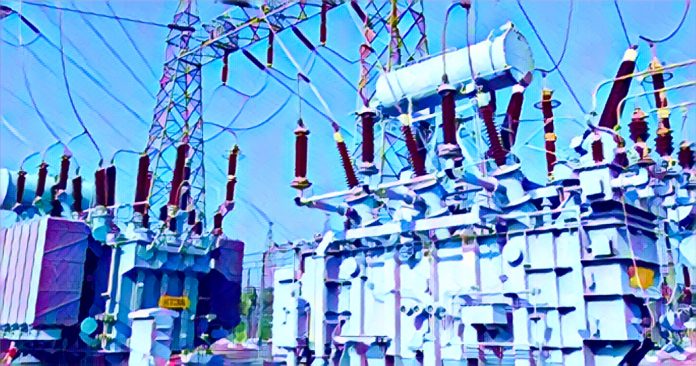KEY POINTS
- Nigeria’s aging infrastructure and gas shortages cause frequent power outages, disrupting businesses and daily life.
- Power outages in northern Nigeria have led to significant economic losses, with productivity down by 60%.
- Addressing infrastructure, security, and renewable energy investment is key to solving Nigeria’s power crisis.
Nigeria’s power sector has long been plagued by many issues, including inadequate infrastructure, inefficient distribution networks, and a lack of reliable power generation. These challenges have resulted in frequent power outages, hindering economic growth and impacting the daily lives of millions of Nigerians. One of the major factors contributing to the power crisis is the inadequate generation capacity.
Despite significant investments in power plants, the country still needs to catch up in electricity supply, particularly during peak demand periods. Additionally, transmission and distribution losses remain high, further exacerbating the problem.
The financial viability of the sector has also been a persistent issue. Many power distribution companies (Discos) struggle with revenue collection and operational costs, leading to a vicious cycle of poor service delivery and financial instability.
Furthermore, corruption and mismanagement have plagued the sector, hindering its development and hindering efforts to improve power supply.
Power outages plunge northern Nigeria into darkness
A recent spate of power outages has plunged 17 states in northern Nigeria into darkness, and while the government has promised intervention, key cities like Kano, Sokoto, Kaduna, and Zamfara have been severely affected, disrupting businesses, healthcare facilities, and daily life.
The outages, attributed to the tripping of the 330-kilovolt (kV) Ugwaji-Apir double circuit transmission lines 1 and 2, which supply electricity to about 80 percent of the northern states, are believed to have been caused by attacks on critical infrastructure, highlighting the vulnerability of Nigeria’s power grid.
These incidents underscore the urgent need to strengthen security measures and invest in infrastructure upgrades to ensure reliable electricity supply. The economic impact of these frequent blackouts is significant. Industries in the affected regions have reported significant productivity losses, estimated to be around 60 percent since the outages began. This has far-reaching consequences, affecting employment, revenue generation, and overall economic growth.
As Nigeria strives to improve its energy infrastructure and enhance power supply reliability, addressing security concerns and investing in modernizing the grid are crucial steps to mitigate the impact of such disruptive incidents.
Investigating the root causes
Nigeria’s persistent power outages are a complex issue stemming from a combination of factors. Aging infrastructure, inadequate maintenance, and insufficient investment have plagued the country’s power sector for decades.
- Infrastructure Constraints: The nation’s power grid, a relic of colonial times, is outdated and often overwhelmed by demand. Transmission and distribution networks are frequently overloaded, leading to frequent power cuts.
- Gas supply shortages: Gas, a crucial fuel source for power generation, has been in short supply due to various factors, including pipeline vandalism, production challenges, and pricing disputes. This has significantly impacted power generation capacity, exacerbating the problem of power outages.
Nigeria’s power sector continues to grapple with significant challenges, resulting in frequent power outages that have far-reaching economic and social consequences. - Economic toll: The recurring power outages inflict a heavy economic burden on the nation. Estimates according to a recent report revealed that the country loses $26 billion annually due to power disruptions. Industries across various sectors, including manufacturing, commerce, and services, are adversely affected, leading to reduced productivity, job losses, and hindered economic growth.
Social and environmental impact
Beyond the economic impact, power outages have significant social and environmental implications. Healthcare facilities, schools, and other essential services are disrupted, compromising public health and education. Additionally, the reliance on diesel generators for backup power contributes to air pollution and exacerbates climate change.
Underlying issues
Several factors contribute to Nigeria’s persistent power crisis:
- Infrastructure Deficiencies: The country’s aging power infrastructure, including transmission and distribution networks, is unable to meet the growing demand for electricity.
- Fuel Supply Shortages: Inadequate gas supply, a primary fuel source for power generation, often leads to reduced power output.
- Regulatory Challenges: Regulatory bottlenecks, inefficient governance, and corruption hinder the sector’s development.
- Technical Losses: High transmission and distribution losses further exacerbate the problem. Approximately 30% of electricity generated is lost before reaching consumers.
The road to a brighter future
To address these challenges and ensure a reliable power supply, Nigeria must prioritize the following:
- Investment in Renewable Energy: The country’s abundant renewable energy resources, such as solar and wind power, can help bridge the energy gap and reduce reliance on fossil fuels.
- Grid Modernization: Upgrading the transmission and distribution infrastructure is crucial to minimize power losses and improve service delivery.
- Regulatory Reforms: Implementing reforms to attract private investment, enhance regulatory efficiency, and ensure transparency is essential.
- Energy Efficiency: Promoting energy efficiency measures can help reduce demand and alleviate pressure on the power grid.
By addressing these issues and embracing sustainable energy solutions, Nigeria can unlock its economic potential and improve the quality of life for its citizens.



